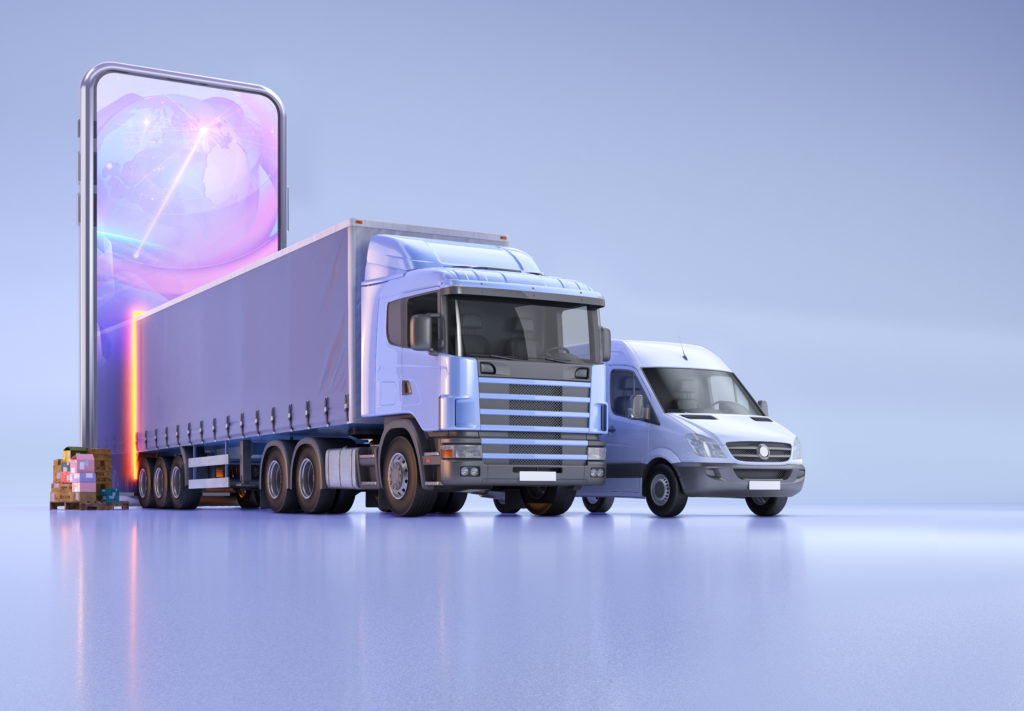
Modern technology has become a staple for trucking companies navigating the challenges of operating during the coronavirus pandemic–namely, software applications.
Specific apps have been helping employers and employees alike better understand the risks of COVID-19 that may occur while at work, and can also allow companies to track employee health, address fears around the virus, and help employers properly respond to a worker contracting the virus.
“While many communities across North America and the world are declaring a state of emergency and are mandating the closure of nonessential businesses, trucking logistics companies are continuing to deliver the goods that we rely on every single day,” said Geotab CEO, Neil Cawse.
Because truckers are still at the frontlines, coronavirus-focused trucking apps need to become readily available for workers across all trucking companies, especially apps with consistent updates on which areas are most affected.
“For instance, if the number of infected [people] has been going up in Charlotte, North Carolina, I might want to take a few extra precautions if I’m going there,” said trucker Todd McCann, who also noted that many truckers have been using word-of-mouth to share COVID-related updates within the industry.
“I work for an LTL company and we often have city drivers from all over the map drive our trucks while we are sleeping at the hotel,” he continued. “It would be extremely important to know if the driver who drove my truck that day showed symptoms of COVID-19.”
However, getting this kind of app usage to become widespread across trucking companies may be more difficult than one might think, McCann said.
“You’d be shocked [by] how many drivers out here are still rocking flip phones–seriously.”
Truck driver training firm CarriersEdge co-founder, Jane Jazrawy, agreed, also saying truckers must be able to stay in constant communication with their companies while on the road. Jazrawy believes the need for a workplace coronavirus management app is of the utmost importance right now.
“[Employees] need to be able to connect to someone at the office if they need help, and they need to know what resources they have if they have symptoms on the road or find themselves in a situation where there is potential exposure,” she explained.
To bring common usage of an app like this would require slow buy-ins and proper testing, though, Jazrawy said.
“The best way to make sure that any technology adoption is successful is through a pilot rollout,” she explained. “Choose a small group of drivers and ask them to be part of the test and ask them to use the system. Ask the drivers who you think will be the most resistant–if they are included in the decision process and they like it, it will be much easier to persuade others to adopt the technology. The pilot doesn’t have to take very long if you want to get started quickly.”
So far, bigger companies like Ryder System Inc. have been able to create their own custom company apps for purposes like these.
“Our approach has been to utilize our existing tools and data analytics capabilities, while augmenting with outside technology partners to solve for a particular use case,” said Ryder Supply Chain Solutions vice president of supply chain excellence, Gary Allen. “As an example, Ryder already has safety solutions–Internet of Things devices–to track personnel and material-handling equipment, and an analytics platform to monitor performance across our business. Our business analytics team built our own app to help with monitoring external hot spots, internal case status, attendance issues, and business interruptions across our Ryder network.”
Still, companies without the capacity for custom app creation can utilize already-made apps for protecting employees from the virus–some that only focus on workplace COVID contact tracing, and others with management solution tools to use during the pandemic. Some of these apps are (often free) software packages, and some are add-ons to other more extensive management packages.
For example, SafetyTek COVID-19 Workforce Health Analysis is a free, stand-alone tool with cloud-based software and the capacity to monitor at-work safety.
“We’re making this solution free because we strongly believe that every company should have access to all the tools available to ensure their team’s health and safety,” said Ryan Quiring, CEO of SafetyTek.
Employees can update their COVID status daily on the app, while companies can offer updated insight on work-from-home situations, human resources, and other safety information.
Kokomo24/7 COVID19Tracker is also free software that consists of a contact tracing tool allowing companies to track their employee’s health and to alert employees that may have recently been in contact with another worker who has contracted the virus. The software uses artificial intelligence to determine the probability of reported COVID cases that need “proactive intervention” from company officials or public health authorities.
Other apps include the stand-alone PwC Check-In and Apian Workforce Safety and Readiness, as well as add on modules like Ceridian Dayforce Employee Safety Monitoring and Pega COVID-19 Employee Safety and Business Continuity Tracker.
“Today, more than ever, it’s critical that employers prioritize employee wellness by engaging and caring for their people,” said Ceridian Chairman and CEO, David Ossip.
Reader Interactions